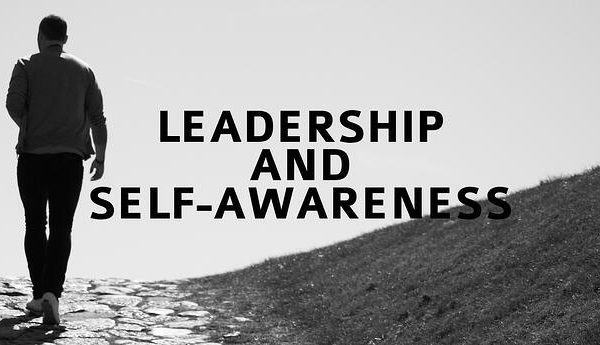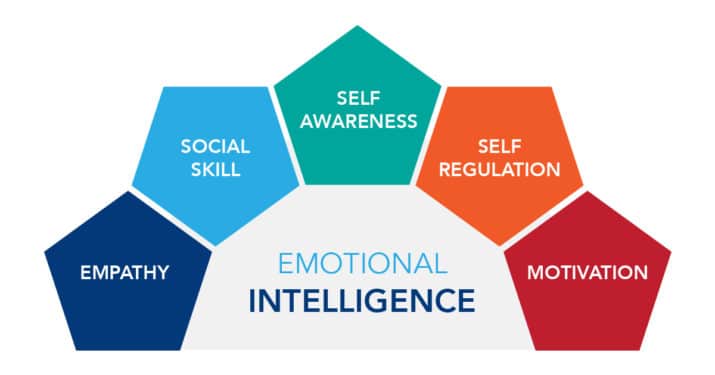The Great Resignation has truly redefined the priorities for millions of businesses worldwide. Workplace relationships is the new priority, which is why a coaching leader is imperative.
After all, leaders lead people, not tasks. A leader’s ability to build relationships with other people is based on their level of self-awareness. If you don’t know who you are, you can’t know anyone else.


Becoming an emotionally intelligent leader can have a major affect on the development of employees.
When leaders are emotionally intelligent, they remain mindful of how words and emotions affect their interactions.
As employees recognize that their leader invests in them, they will perform better than expected.
This article defines the coaching leader, the second of the four hallmark qualities of emotionally intelligent leaders, and guide you on how to improve these qualities within yourself.
What is an Emotionally Intelligent Leader?
An emotionally intelligent leader is aware of, understands, and manages their own and others’ emotions effectively.
Emotionally intelligent leaders invest time in their employees by asking thoughtful questions and paying close attention to responses.
By asking these types of questions, leaders can identify employee goals, motivations, strengths, and weaknesses.
Consequently, thought-provoking questioning also enables employees to find answers on their own, which builds their confidence and autonomy.
Guiding employees toward self-discovery requires a high level of curiosity from leadership.
Lastly, emotionally intelligent leaders maintain open communication with those they serve. Open relationships between leader and employee build rapport and are more effective during goal attainment
Dr. Stein cited that an emotionally intelligent leader has four hallmark qualities: Authenticity, Coaching, Insight, and Innovation.
If you would like a refresher on the first hallmark quality, check out my blog!
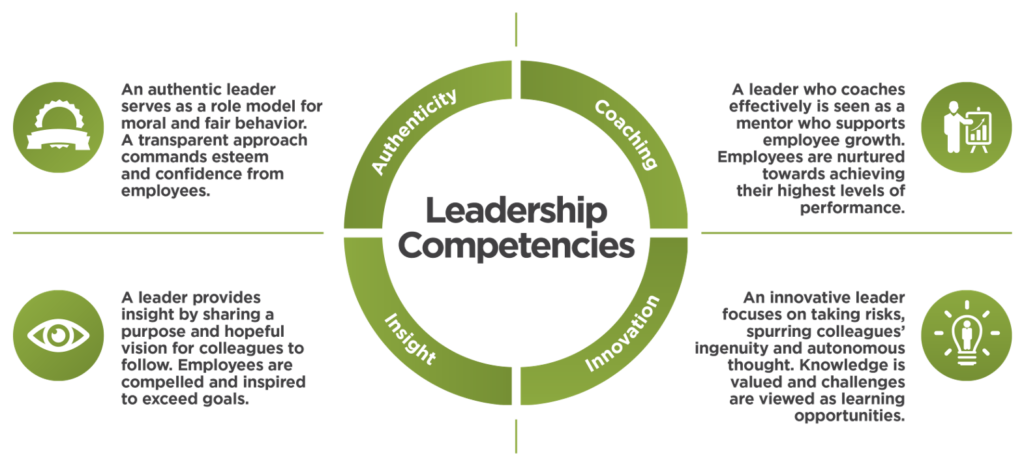

The Vice President of Sales: Darleen
Darleen has been the VP of sales for a large tech company for over 20 years.
Darleen didn’t receive formal education and worked her way up the ranks over many years. Consequently, she expected everyone to put the same level of work into their jobs.


When Darleen views an employee as too complacent, she uses verbal abuse as motivation. This causes employees to feel demoralized, which is contributing to the high turn over.
The office environment shifts as she walks into the room. Most employees are too intimidated to look Darleen in the eye.
However, Darleen thrives on a sense of power over employees. If an employee isn’t intimidated by Darleen, she will fire them.
Unfortunately, Darleen believes that fear is the best motivator for results.
The CEO knows Darleen’s behavior and sees the long-term effects on morale. Darleen faces a choice, receive training or leave the company.
EQ Consultant
The CEO hires an EQ consultant to assess their situation.
The EQ consultant first interviews the CEO, Darleen, and employees. After the interviews are complete, the consultant has them take the a 360 feedback assessment for Darleen.
The results of the EQ360 give a clear picture of whether Darleen’s self-assessment is accurate when compared with others.
The EQ consultant takes note of the drastic gaps between Darleen’s and the ratee’s results.
Thus, these gaps are used during recommendations for development during one-on-one coaching.
Lastly, the EQ consultant explains each of the four hallmark emotionally intelligent leader qualities and offers suggestions to help Darleen develop a Coaching approach.
The Coaching Leader
Coaching leaders are mentors – they support employee needs and take an active role in their growth.


This type of leader uses questions to help reframe employees’ thought processes.
Instead of dwelling over things they need to work on, questions generate insight on how they can best use their strengths to achieve goals.
The coaching leader makes connections between employee development and the organization’s long-term goals, using positive reinforcement to help motivate.
Overall, six EQ skills differentiate coaching leaders from average leaders: Self-Actualization, Emotional Self-Awareness, Assertiveness, Interpersonal Relationships, Empathy, and Reality Testing.
Self-Actualization
The pursuit of meaningful goals.
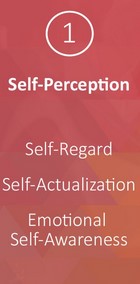

Leaders high in Self-Actualization spent their entire lives developing themselves to achieve their vision. They create the right conditions to stimulate exceptional performance, which leads to higher morale, motivation, and results.
The EQ consultant encourages Darleen to develop a meaningful vision for her life. Darleen will be less likely to find fulfillment in exerting power over others if she has a meaningful goal to pursue.
A strategy consists of having Darleen think about activities that make her feel excitement.
First, Darleen will identify the activities she could do for the rest of her life without getting paid and still be fulfilled.
Then, she will create a vision statement for herself.
Emotional Self-Awareness
Having a deep understanding of what triggers emotions is Emotional Self-Awareness. Leaders high in Emotional-Self Awareness have learned to manage their emotions to lead with finesse.
The coaching leader understands their employees because they understand themselves.
This type of leader knows how to use their emotions during interactions, making them effective relationally and strategically.
First, The EQ consultant recommends that Darleen practices identifying emotions as they emerge.
Therefore, Darleen keeps a journal and write down the emotions that show up during the day with their accompanying thoughts.
Fortunately, recording emotions as they occur will help Darleen identify the thought patterns that trigger negative emotions, which will help build self-awareness.
Assertiveness
Assertive leaders exert conviction on their thoughts and beliefs while considering employees’ perspectives.
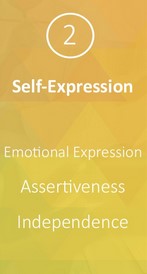

The coaching leader is open to hearing other perspectives but ultimately makes their own decisions.
These leaders communicate their thoughts and feelings in a way that empowers employees into action.
The EQ consultant notices that Darleen scored low in empathy, which may contribute to her over assertiveness.
Therefore, the consultant suggests that Darleen thinks of various empathetic statements to add at the beginning of her sentences.
Statements such as “I respect your views” or “I understand your position” can soften assertiveness to achieve a healthy balance.
Interpersonal Relationships
Leaders high in interpersonal relationships know how to build and maintain healthy long-term relationships.
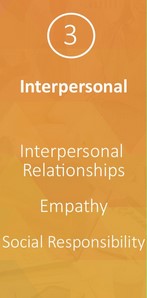

The coaching leader values employees and communicates in a way that speaks to their hearts and minds. This leader inspires employees to perform beyond their job roles.
A suggestion for Darleen to develop stronger relationships with her team is to think of a list of what she believes each employee needs from her.
Then, Darleen should schedule a time to meet with each employee to confirm if her thinking is accurate.
This strategy is an excellent want to start building rapport and trust among employees.
Lastly, Darleen will likely learn something new about each employee which can help foster greater empathy.
Empathy
Leaders high in empathy understand and appreciate what employees feel.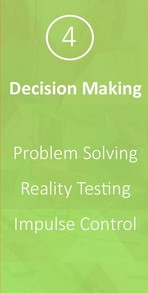

The coaching leader deeply connects to employees and leads by showing compassion for their specific needs.
The EQ consultant suggests that Darleen practice reading employees’ body language and tone of voice to assess their actual needs.
Then, confirm with each employee whether Darleen’s reading was accurate or not.
Reality Testing
It is an objective view of reality without bias.
This leader can guide employees objectively with evidence grounded in data.
First, the EQ consultant recommends that Darleen provide evidence for her claims.
The next time Darleen has a strong feeling she needs to address with an employee, she must have data that backs up her claim.
3 Tips and Reminders for Coaching Leaders
- Listen for people’s potential. You can achieve this by asking questions and actively listening for the answers.
- Model the behaviors you want to see. As a leader, it is your responsibility to be a positive role model for your employees.
- Develop strengths. An emphasis on strengths will depend on your ability to listen.
Closing
The second hallmark quality of an emotionally intelligent leader is coaching, a mentor that nurtures employee development.
To be a coaching leader, you must have a curious nature and ask questions to find answers and help employees through the self-discovery process.


Once you find out employees’ strengths and weaknesses, you must ensure that employees are using their strengths and developing their weaknesses.
The Coaching leader must model a self-development mentality. That way, employees will remain receptive to adopting a similar mentality.
Lastly, the best way to assess Coaching leadership is to take the Leadership EQ-i or EQ 360. Then you can work with a consultant in developing specific EQ skills, action plans, and goals.
If you would like to learn more, please visit my website. I post new articles every Tuesday and Thursday and update my podcast every Monday, Wednesday, and Friday.
Please subscribe to either my blog or podcast if you enjoy my content.
Bianca Cardenas, M.S., Ph.D., is a Fellow in Executive Assessment and Consulting with Leadership Worth Following. Dr. Bianca Cardenas empowers leaders to transcend competition by helping them unlock their people's potential.


